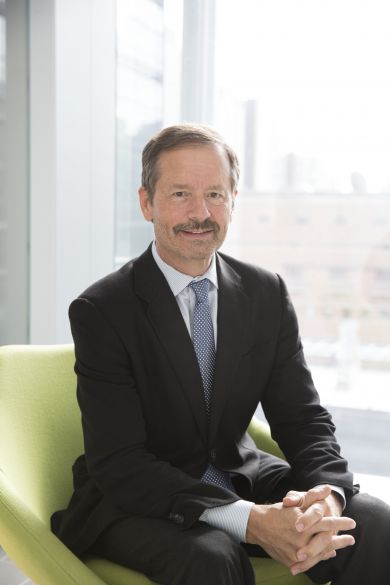Lewis Cantley to receive 2015 AACI distinguished scientist award
The Association of American Cancer Institutes (AACI) will present the AACI Distinguished Scientist Award to Lewis Cantley, Ph.D., on October 26, during the 2015 AACI/CCAF Annual Meeting, in Washington, DC. Prior to the award presentation, Dr. Cantley will deliver a talk entitled, "Targeting PI3K for Cancer Therapy".
The AACI Distinguished Scientist Award acknowledges extraordinary scientific accomplishments and contributions to cancer research. Previous honorees are Brian Druker, Lee Hartwell, Mary Claire King, Timothy Ley, Janet Rowley, Stuart Schreiber, Margaret R. Spitz, Bert Vogelstein, Robert Weinberg and Irving Weissman.
A cell biologist and biochemist who serves as The Margaret and Herman Sokol Professor in Oncology Research and director of the Sandra and Edward Meyer Cancer Center at Weill Cornell Medical College, Dr. Cantley’s pioneering research has resulted in revolutionary treatments for cancer, diabetes and autoimmune diseases. Among his research contributions was the discovery of the phosphoinositide 3-kinase (PI3K) pathway, which enabled a new understanding of the way biochemical signaling pathways control normal cell growth and how they can trigger the development of cancer when they are defective.
Dr. Cantley is a fellow of the American Academy of Arts and Sciences, a member of the National Academy of Sciences USA, and the author of over 400 original papers and more than 50 book chapters and review articles. He graduated summa cum laude with a BS in chemistry from West Virginia Wesleyan College (1971) and obtained a PhD in biophysical chemistry from Cornell University (1975).
Dr. Cantley conducted postdoctoral research at Harvard University, where he was appointed assistant professor of biochemistry and molecular biology in 1978. He became a professor of physiology at Tufts University in 1985, but returned to Harvard Medical School as professor of cell biology in 1992. He became chief of Harvard’s new Division of Signal Transduction, and a founding member of its Department of Systems Biology in 2002. In 2007, he was appointed director of the Beth Israel Deaconess Cancer Center. He joined the faculty of Weill Cornell Medical College and NewYork-Presbyterian Hospital in 2012.



